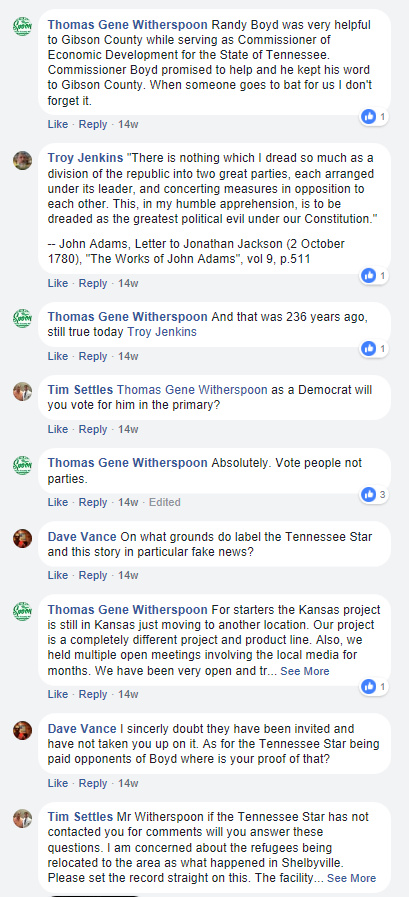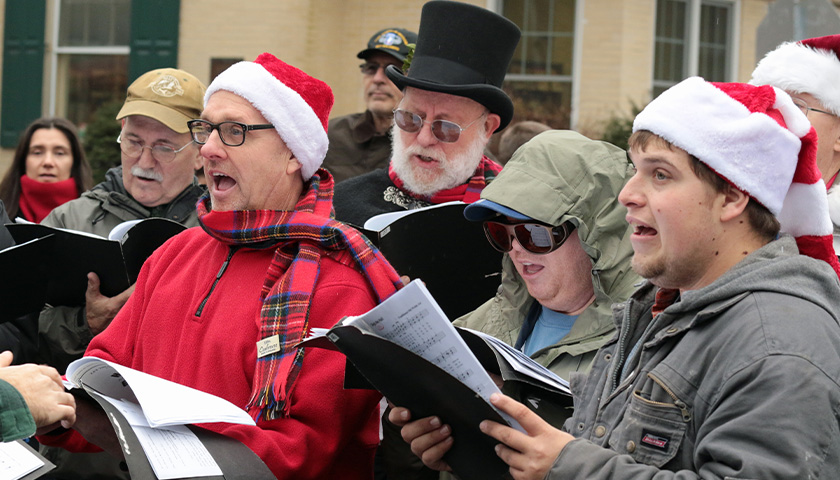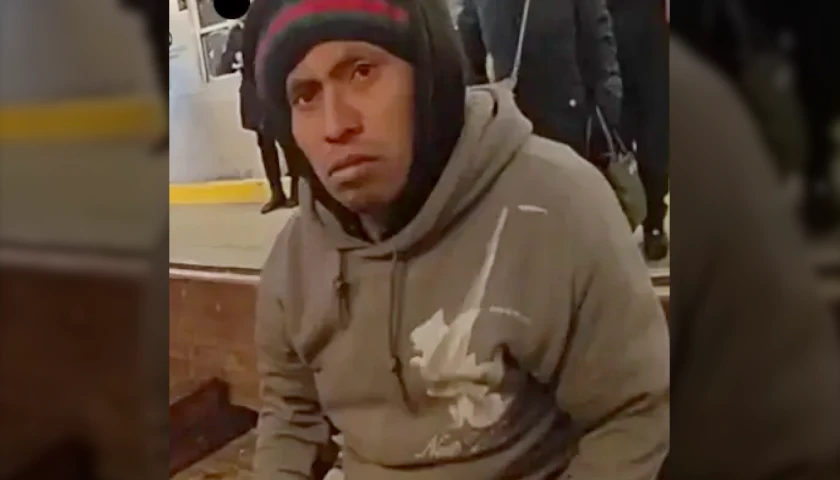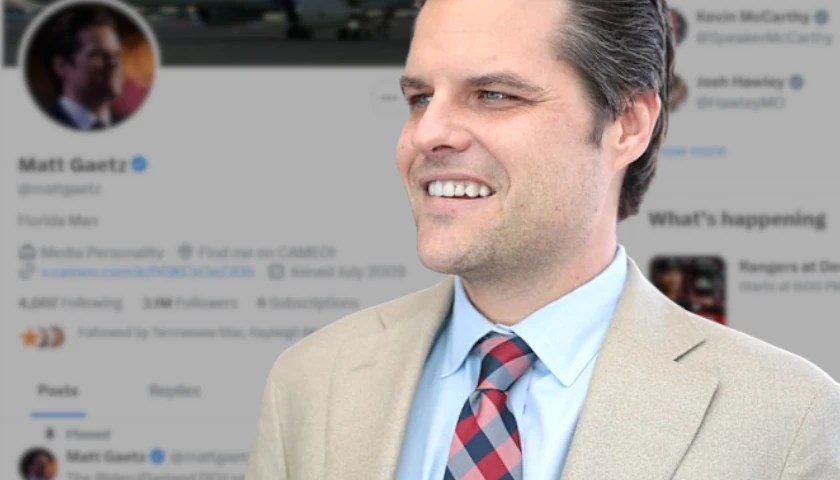Last week The Tennessee Star reported that the Williamson County Election Commission has referred materials related to an investigation into a report that seemed to show at least two Democrats – both of whom are currently running for elected office – voted in the Republican primary to the District Attorney for further investigation and possible prosecution.
 Gibson County Mayor Tom Witherspoon, twice elected as a Democrat on the party’s ticket, was included on GOP gubernatorial candidate Randy Boyd’s July 2017 list of county mayor endorsements. Witherspoon credited Randy Boyd for helping “Gibson County stay in the race to land the Tyson Foods plant” and suggested that his vote for Boyd was payback for that assistance saying, “[t]hat man kept his word with me and I’ll keep my word with him.”
Gibson County Mayor Tom Witherspoon, twice elected as a Democrat on the party’s ticket, was included on GOP gubernatorial candidate Randy Boyd’s July 2017 list of county mayor endorsements. Witherspoon credited Randy Boyd for helping “Gibson County stay in the race to land the Tyson Foods plant” and suggested that his vote for Boyd was payback for that assistance saying, “[t]hat man kept his word with me and I’ll keep my word with him.”
Witherspoon’s endorsement of Boyd was followed with his confirmation on Facebook that he would he would vote for Boyd in the Republican primary election because he “votes people, not parties.” Shortly thereafter, Witherspoon filed his petition to run for a third time as a Democrat candidate for mayor.
Nine days after Witherspoon filed his petition to run for re-election as a Democrat, Keith Cunningham, chair of the Gibson County Democratic Party announced that he would run for Mayor.
When asked by The Star about his decision to run against Tom Witherspoon and his view of Witherspoon’s public endorsement of Randy Boyd, Cunningham said, “Mr. Witherspoon has the right to vote for whomever he wants. But out of respect for the Democratic party of which he claimed to be a ‘lifelong member’ I believe he should have kept his endorsement for Randy Boyd private.”
Witherspoon’s public repudiation of the party that supported him in prior elections, apparently did not sit well with its members resulting in Witherspoon changing course and now running for mayor as an Independent.
The case in Williamson County, however, should serve as a cautionary flag to both Witherspoon and Cunningham and many other voters in Tennessee who believe that the state’s voting law allows for casual crossing of party lines in primary elections. A careful reading of the state law which operates more like an honor code, counsels otherwise.
TCA 2-7-115(b) states that a registered voter is entitled to vote in a primary election for offices for which the voter is qualified to vote at the polling place where the voter is registered if:
(1) The voter is a bona fide member of and affiliated with the political party in whose primary the voter seeks to vote; or
(2) At the time the voter seeks to vote, the voter declares allegiance to the political party in whose primary the voter seeks to vote and states that the voter intends to affiliate with that party.
Similar to past legislative sessions, this year a bill was introduced to close the primary elections by requiring a voter to declare a party affiliation before voting in a primary election. As in years past, no bill was passed.
Having left the Democrats behind as a newly declared Independent, Witherspoon may be able to vote for Boyd without violating the state’s voting law. Returning to the Democrat party or even flipping to the Republican party may be a tougher move for Witherspoon who has discarded all allegiances to either political party.




